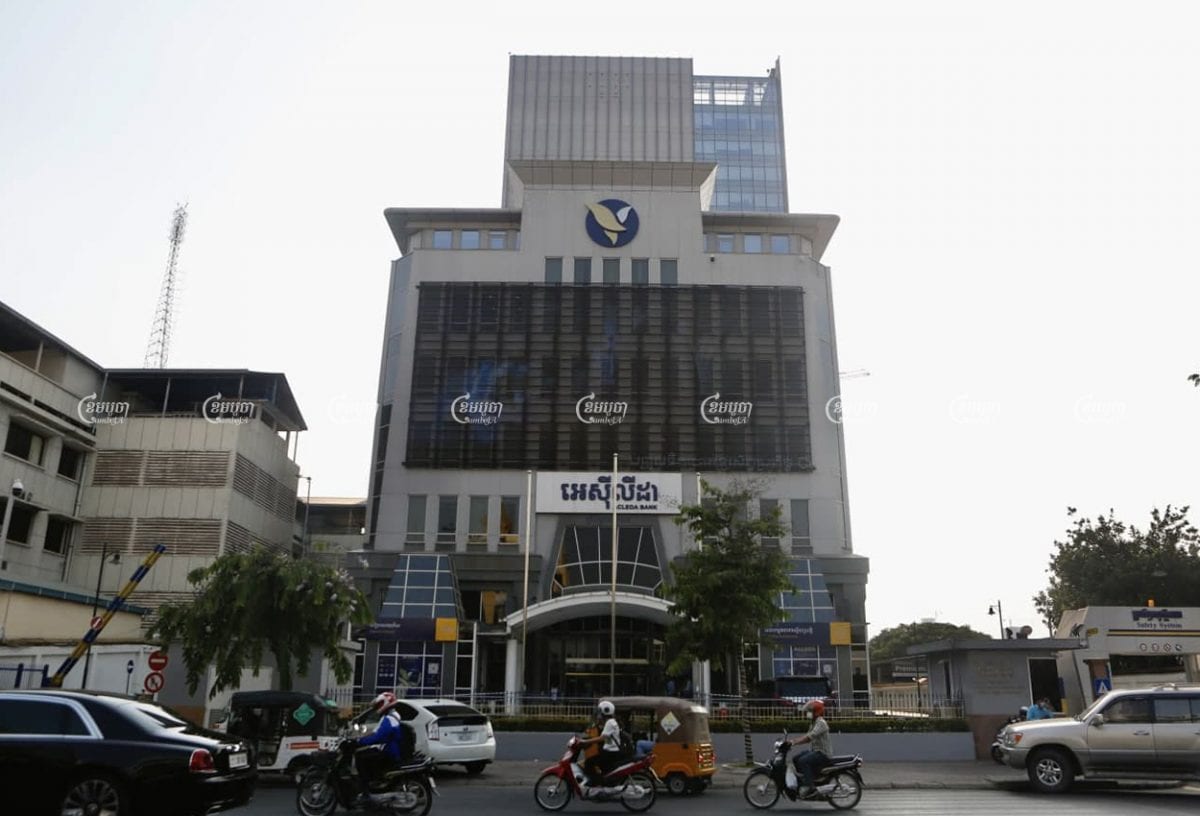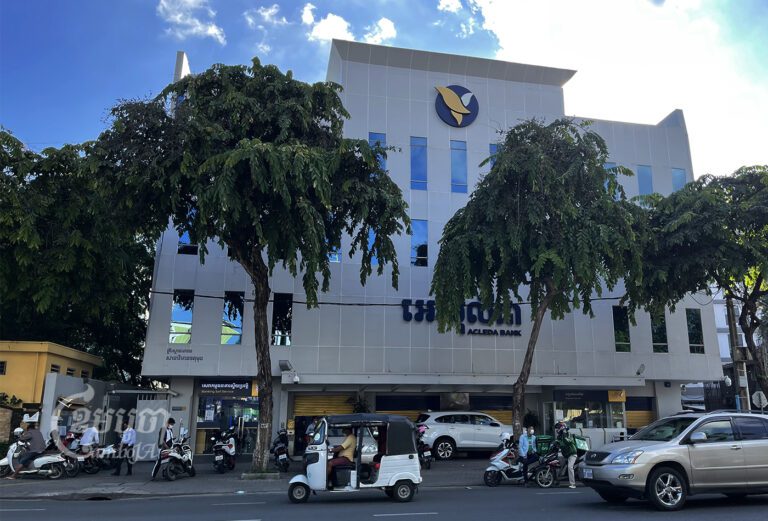Cambodian financial institutions announced on Wednesday additional measures to ease financial burdens for customers affected by COVID-19, just one day after more than 100 civil society organizations called for a three-month, across-the-board period of borrower relief.
However, according to an April 7 joint statement from the Cambodia Microfinance Association (CMA) and the Association of Banks in Cambodia (ABC), the measures offered by financial institutions have more strings attached than what civil society had hoped for. Though the economic impacts of the pandemic have cut across most levels of society, the two industry groups set as their highest priority for debt relief those borrowers who have tested positive for COVID-19, as well as those placed in a 14-day health quarantine.
According to the joint statement, member institutions of CMA and ABC will waive some interest payments for at least one month, as well as lifting penalties for late payments and providing a three-month delay for repayment of loan principal for customers who have tested positive for COVID-19.
Similarly, the statement read, member institutions will allow borrowers who have been placed by health authorities into a 14-day quarantine to restructure loans, suspend all loan repayments for one month and waive any late payment penalties.
The financial institutions included within CMA and ABC will also provide loan restructuring for first-time homeowners who took loans to purchase their homes and have been affected by the pandemic. Finally, the lenders will also provide easier access to emergency relief loans to support businesses, offering those clients lower interest rates.
“[Microfinance institutions] and banks have actively joined to ease financial burden for customers during the COVID-19 by providing loan restructure and other easing measures,” the statement read. “With this impact, both CMA and ABC must continue to implement any measures put [forward] by the government to ensure that all customers are protected during this time.”
As of the end of February, more than 340,000 customers of CMA and ABC institutions were already approved to restructure loans worth a total of more than $4 billion. The large majority of those borrowers, about 300,000, had taken on their debt from microfinance institutions. Restructured microfinance loans amounted to $1.4 billion, as of March.
However, civil society organizations that had signed onto Tuesday’s collective letter say loan restructuring is not enough to help affected people, especially as the third and ongoing outbreak of COVID-19 in Cambodia has crunched household incomes. Their 103-signature plea had made a public request of the government to press financial institutions to enact a freeze on all debt repayments and interest accrual on loans.
Am Sam Ath is deputy director of monitoring of the human rights group Licadho, which led the Tuesday statement, said the response from financial institutions has maintained a case-by-case methodology. To address the full economic impact of COVID-19, Sam Ath called on financial institutions to widen the scope of borrower relief.
“If we look at the overall view in this hard time of COVID-19, there is serious pressure as people stay at home for safety. When they stay at home, it means they are also [essentially] in quarantine and lose revenue, so they will not be able to repay loans,” he said.
Cambodia’s financial institutions have also received funds from foreign creditors as part of development schemes to promote the creation of ‘micro jobs’ and businesses. Rights groups have frequently called on foreign creditors to study the actual implementation of these programs in Cambodia, which Licadho and others have accused of pushing borrowers into a debt trap.
Dok Sovan, a garment worker in Kandal province, told CamboJA she borrowed $16,000 to build a new house and buy the motorcycle. Sovan needs to repay her debt at a pace of $360 per month for six years.
“I may not be able to pay back the loan next month if the situation continues for long, because my husband lost his job and I alone cannot handle the daily expenses,” she said.
Sovan, who for six months last year was allowed by her lender to pay only the interest rate for her loan, forgoing payments to the principal, said she earns just about $200 per month. Her husband, who transports goods at O’Russei Market, lost his job when health authorities on April 4 shut down the market for two weeks when a COVID-19 infection cluster was discovered there. About 60 people connected to the market have since tested positive for the virus.
Sovan said she appreciated the statements of financial companies to help those either infected with or quarantined from COVID-19, but said those measures are not enough.
“Staff or others who lost jobs or had their jobs suspended during COVID-19 are also affected and they cannot earn money,” she said. “So how are they [supposed to be] able to pay back the loan?”









